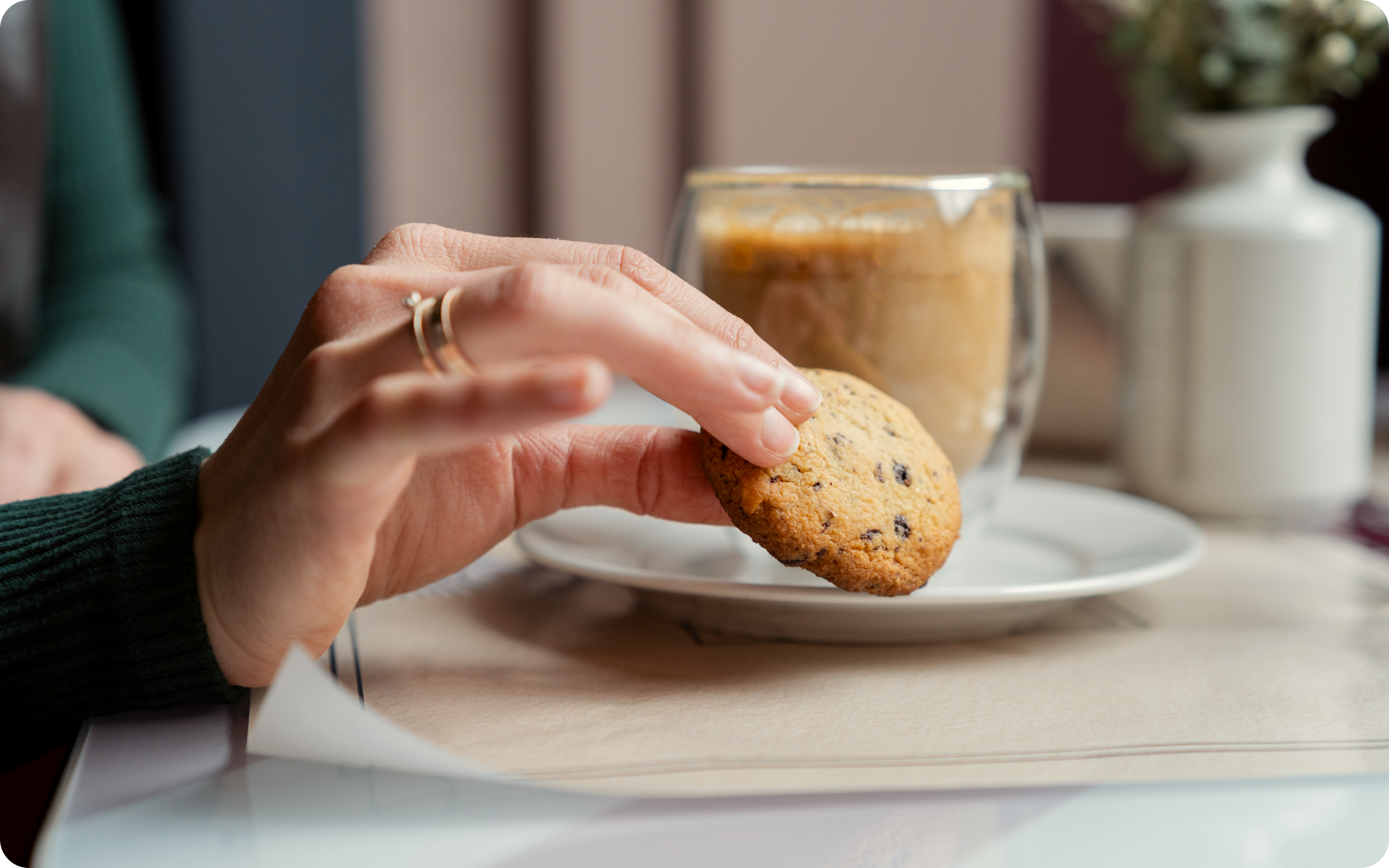Fasting to gain muscle seems contradictory. Conventional wisdom dictates that muscle growth requires constant fuel. Your body needs a steady supply of nutrients to repair and build new muscle tissues after intense workouts.
But there may be benefits to fasting you wouldn’t want to miss. These include improved insulin sensitivity, reduced inflammation, and potentially even enhanced growth hormone levels—all of which are potentially helpful for bodybuilders aiming for lean muscle gains (14).
Can you effectively combine intermittent fasting with a bodybuilding regimen to achieve muscle growth? If so, how do you balance the timing of your meals and workouts to maximize both fat loss and muscle gain?
Here’s what you need to know.
Can Bodybuilders Do Intermittent Fasting?
Bodybuilders can do some forms of intermittent fasting. It may be a beneficial practice, and when done correctly, it may help you achieve your fitness goals. Research has suggested that intermittent fasting may offer these benefits for bodybuilders:
Enhanced Fat Loss
Intermittent fasting is believed to lead to an increase in the body’s utilization of fat as fuel by extending the period when your body has consumed its glycogen stores. During fasting, insulin levels drop, and growth hormone levels may increase. This hormonal environment is said to favor fat burning, which is essential for bodybuilders who are looking to maintain a lean physique (7).
Improved Insulin Sensitivity
Regularly practicing IF can improve insulin sensitivity (9), which is beneficial for bodybuilders for a couple of reasons. Improved insulin sensitivity helps with more efficient nutrient uptake into the muscle cells (13), which can help with muscle growth and recovery. In addition, better insulin control may make it easier to manage body fat levels, helping bodybuilders achieve a more defined look.
Increased Human Growth Hormone (HGH) Levels
Studies have suggested that fasting for longer periods can significantly increase levels of human growth hormone (HGH), a critical factor in muscle growth and recovery (4). Higher HGH levels can enhance muscle gain and strength (1), which are essential for bodybuilding success. However, it is unclear whether short-term fasting has the same effect.
Enhanced Cellular Repair Processes
Intermittent fasting is believed to boost autophagy, a process where cells remove and recycle damaged components (15). For bodybuilders, enhanced autophagy may mean improved muscle recovery and longevity, in addition to a reduction in inflammation, potentially contributing to better overall health and performance (2).
In our previous blog post, Intermittent Fasting for Men, we explored the different intermittent fasting methods and their benefits for men. These benefits also apply to bodybuilders, who can effectively use IF as part of their muscle-building regimen.
Can You Build Muscle with Intermittent Fasting?
Yes, you can build muscle with intermittent fasting. Despite common concerns about potential muscle loss, recent studies and expert opinions suggest that when it is done correctly, intermittent fasting can be conducive to muscle growth (6). Key factors that contribute to building muscle while following an intermittent fasting regimen include:
What You Eat
IF is not an excuse to eat whatever you want during your feeding window. To build muscle effectively, you still need to consume enough protein and calories (particularly from quality sources) to support growth. You should aim for a protein intake of around 0.8-1 gram per pound of body weight per day, spread out over your meals (11).
You’ll need enough carbs too. These are the primary source of energy for intense workouts, and your body needs them to replenish glycogen stores and support muscle growth. However, you should be mindful of your carb sources. Opt for complex carbohydrates from whole grains, starchy vegetables, and legumes such as sweet potatoes, quinoa, and brown rice instead of refined carbs and added sugars (11).
Reasons why BetterMe is a safe bet: a wide range of calorie-blasting workouts, finger-licking recipes, 24/7 support, challenges that’ll keep you on your best game, and that just scratches the surface! Start using our app and watch the magic happen.
When You Eat
Timing is very important when it comes to building muscle with intermittent fasting. While your feeding window is shorter, this doesn’t mean you should skip pre and post-workout nutrition. It’s essential to consume enough protein and carbs before and after your workouts to support muscle growth and recovery.
Fasted exercise may have benefits, but evidence supporting its superiority for muscle building is still inconclusive. Most of us can’t perform our best and achieve progressive overload on an empty stomach, so it’s essential that you prioritize proper nutrition around your workout schedule.
It’s likely that you’ll find that consuming some fast-digesting carbs and protein before training can positively impact your energy levels, focus, and performance. So, consume a pre-workout meal or shake before you hit the gym to ensure you can train hard and make the most of your training session.
You should aim to eat a balanced meal or snack containing protein and carbs within an hour of finishing your workout. Evidence has suggested that consuming protein and carbs within this post-workout anabolic window can help with muscle protein synthesis, leading to improved muscle growth (12).
You can also consider adjusting your fasting schedule to align with your training sessions, so you can eat your pre and post-workout meal during your feeding window.
How Much You Eat
Building muscle requires a caloric surplus, which means you need to consume more calories than your body burns. This principle applies regardless of whether you’re following intermittent fasting or not.
It may be possible to build muscle on a caloric deficit if you’re new to resistance training and are consuming enough protein, but ultimately, you’ll need to increase your caloric intake to continue to see progress.
The nature of intermittent fasting can make it difficult to consume enough calories in a limited feeding window, particularly for those with a high caloric need. To overcome this challenge, you may need to plan your meals carefully and include more calorie-dense foods in your diet.
At the very least, you should consume enough calories to meet your daily energy needs and protein requirements and support muscle growth. You can use a calorie calculator or consult a dietitian to determine your specific caloric needs.
Consistency with Resistance Training
It goes without saying that building muscle requires consistent resistance training. While intermittent fasting may be a powerful tool for muscle growth, it won’t do much if you don’t put in the work at the gym.
To see progress, you should aim to train with weights at least three times per week, follow a structured program, and progressively increase weight or volume over time.
If you find training in a fasted state to be challenging, you should consider scheduling your workouts during your feeding window. Consistency with training and proper nutrition are the key factors in building muscle with intermittent fasting.
Sufficient Rest and Recovery
Muscle growth is reliant on proper rest and recovery. Intermittent fasting may optimize cellular repair processes, but you must still prioritize sleep and manage stress levels to see progress (10).
Ensure you get enough quality sleep each night (7-9 hours is recommended) and consider incorporating stress-reducing activities such as yoga or meditation into your routine.
Taking rest days from training is also essential for muscle growth. You should aim for at least one or two days of rest each week to give your body enough time to repair and grow.
Read more: Calisthenics vs Bodybuilding: Which One is Right for You?
What Is 16-Hour Intermittent Fasting for Bodybuilders?
16 hours is believed to be the sweet spot for intermittent fasting for bodybuilders. The 16/8 method, also known as the Leangains protocol, involves a 16-hour fast followed by an 8-hour feeding window.
This schedule allows for two meals during the feeding window, which makes it easier to consume enough calories and protein while still reaping the benefits of fasting. Many bodybuilders and athletes have found success using this method as it allows for flexibility and consistency with training and nutrition.
When deciding on your fasting schedule, it’s important to listen to your body and find out what works best for you. Some individuals may thrive with a longer fasting period, whereas others may do better with a shorter one.
Here are some tips to help you get started with the 16/8 method:
- Gradually increase your fasting window: If you’re new to intermittent fasting, start with a smaller fasting window (10-12 hours) and gradually increase it over time until you reach 16 hours.
- Stay hydrated: It’s essential to stay hydrated during your fast, so make sure you drink plenty of water throughout the day.
- Know your zero-calorie options: While fasting, it’s important to avoid consuming any calories. However, you can still enjoy zero-calorie beverages such as black coffee and unsweetened tea.
- Have a balanced diet: Your meals during the feeding window should still consist of nutrient-dense foods from all food groups to support muscle growth and overall health.
- Be consistent with your fasting schedule: To see results, it’s essential that you’re consistent with your fasting and feeding windows. Try to stick to the same schedule every day to achieve optimal results.
Longer fasting periods such as 18-24 hour fasts or alternate day fasting are discouraged for a few reasons: they can be difficult to maintain, may lead to nutrient deficiencies, and could interfere with muscle growth.
Furthermore, not everyone responds well to longer fasting periods as they can increase stress levels and lead to overeating during the feeding window.
That being said, there are specific cases where longer fasting periods may be beneficial, including:
- Cutting for a bodybuilding competition: Some bodybuilders may use longer fasting periods as part of their cutting strategy to achieve low levels of body fat for a competition.
- Breaking through a plateau: If you’ve been following intermittent fasting for a while and have hit a plateau in your progress, a longer fast may help jumpstart your body’s fat-burning processes.
- Personal preference: As previously mentioned, it’s essential that you listen to your body and find what works best for you. Some individuals may naturally gravitate toward longer fasting periods and see good results, but others may not.
If you choose to use intermittent fasting for cutting while bodybuilding, keep it brief. A few weeks of longer fasting periods may be beneficial, but prolonged use could lead to muscle loss and hinder your progress.
You should stick to your intermittent fasting bodybuilding meal plan as closely as possible for optimal results. Check out our Intermittent Fasting Snacks guide for some snack ideas that fit within the 16/8 method.
BetterMe app will provide you with a host of fat-frying fitness routines that’ll scare the extra pounds away and turn your body into a masterpiece! Get your life moving in the right direction with BetterMe!
FAQs
Can I bulk while intermittent fasting?
Yes, it’s possible to bulk while intermittent fasting. As long as you consume enough calories and protein during your feeding window, you can still see muscle growth and progress.
Why don’t bodybuilders do intermittent fasting?
Bodybuilders may struggle with intermittent fasting as it can be challenging to consume enough calories and protein in a shorter feeding window. Lifting heavy weights while fasting is also not ideal for everyone, and some individuals may need to adjust their training schedule to fit with intermittent fasting.
In addition, bodybuilders often follow strict meal plans and eating schedules, which may conflict with the flexibility of intermittent fasting. However, some bodybuilders have found success with incorporating intermittent fasting into their routine, which suggests that it can be a useful tool for fat loss and muscle growth.
Will I lose muscle if I intermittent fast?
If you go on extended fasts for too long or don’t consume enough calories and protein during your feeding window, you may experience muscle loss. However, intermittent fasting may help preserve muscle mass while promoting fat loss if it is done correctly.
Does 16/8 fasting cause muscle loss?
Fasting for 16 hours and eating during an 8-hour window shouldn’t cause muscle loss as long as you consume enough calories and protein during your feeding window. You should also be consistent with your strength training routine to support muscle growth.
Will I lose muscle if I fast for 2 days?
Fasting for 2 days once in a while is unlikely to cause significant muscle loss. The process of autophagy may even promote muscle repair during this time (2). However, prolonged lengthy fasting periods may lead to muscle breakdown if you don’t consume enough protein and calories during your feeding window.
The Bottom Line
Intermittent fasting can be an effective tool for building muscle when it is done correctly. Be mindful of what, when, and how much you eat, prioritize consistency with resistance training, and ensure you get adequate rest and recovery. By incorporating these principles into your intermittent fasting regimen, you can achieve muscle growth and reap the other potential health benefits of this eating pattern.
DISCLAIMER:
This article is intended for general informational purposes only and does not serve to address individual circumstances. It is not a substitute for professional advice or help and should not be relied on for making any kind of decision-making. Any action taken as a direct or indirect result of the information in this article is entirely at your own risk and is your sole responsibility.
BetterMe, its content staff, and its medical advisors accept no responsibility for inaccuracies, errors, misstatements, inconsistencies, or omissions and specifically disclaim any liability, loss or risk, personal, professional or otherwise, which may be incurred as a consequence, directly or indirectly, of the use and/or application of any content.
You should always seek the advice of your physician or other qualified health provider with any questions you may have regarding a medical condition or your specific situation. Never disregard professional medical advice or delay seeking it because of BetterMe content. If you suspect or think you may have a medical emergency, call your doctor.
SOURCES:
- Action of GH on skeletal muscle function: molecular and metabolic mechanisms (2014,jme.bioscientifica.com)
- Autophagy in muscle regeneration: potential therapies for myopathies (2022,wiley.com)
- Body Weight Planner (n,d,nih.gov)
- Effects of Intermittent Fasting on the Circulating Levels and Circadian Rhythms of Hormones (2021,e-enm.org)
- Effect of changes in sleeping behavior on skeletal muscle and fat mass: a retrospective cohort study (2023,nih.gov)
- Is muscle and protein loss relevant in long‐term fasting in healthy men? A prospective trial on physiological adaptations (2021,nih.gov)
- Intermittent fasting: eating by the clock for health and exercise performance (2021,bmjopensem.bmj.com)
- Intermittent fasting for the prevention of cardiovascular disease (2021,nih.gov)
- Intermittent Fasting and Insulin Resistance: (2022,jeffersonhealth.org)
- Maximizing Muscle Hypertrophy: A Systematic Review of Advanced Resistance Training Techniques and Methods (2019,nih.gov)
- Nutritional Strategies to Promote Muscle Mass and Function Across the Health Span (2020,nih.gov)
- Nutrient timing revisited: is there a post-exercise anabolic window? (2013,jissn.biomedcentral.com)
- Regulation of Macronutrients in Insulin Resistance and Glucose Homeostasis during Type 2 Diabetes Mellitus (2023,nih.gov)
- Research on intermittent fasting shows health benefits (2020,nih.gov)
- The effect of prolonged intermittent fasting on autophagy, inflammasome and senescence genes expressions (2023,sciencedirect.com)
- Time-Restricted Eating to Improve Cardiovascular Health (2021,nih.gov)









